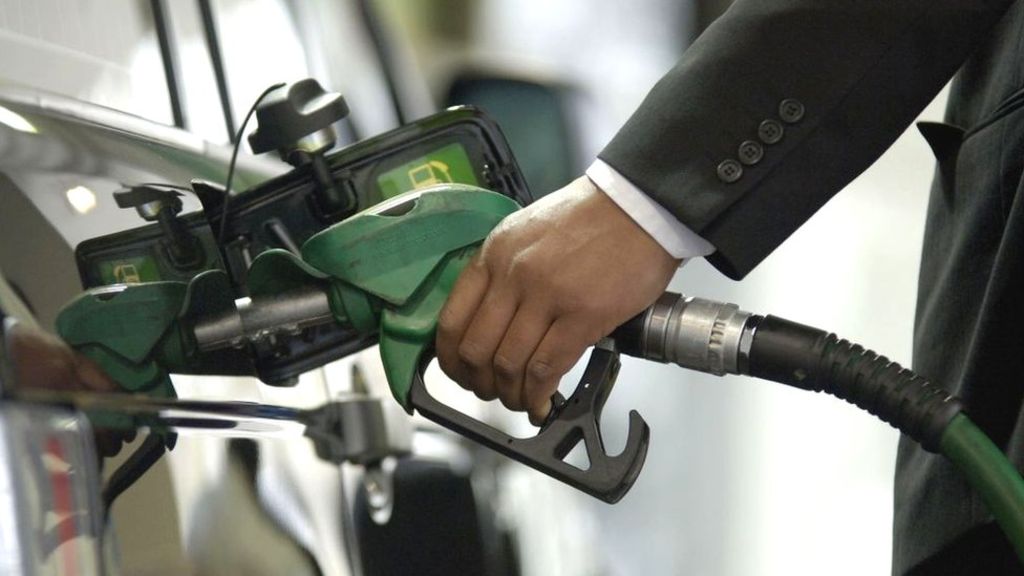Energy
Nigeria’s petrol import hits N2.52trn, soars 55% in nine months
Published
4 years agoon

The cost of Premium Motor Spirit (PMS), also known as petrol, imported into Nigeria from January to September this year surged by 55.56 per cent to N2.52 trillion from the N1.62 trillion spent in the same period of 2020.
The development came amid the Federal Government’s plan to remove subsidy from petrol by February next year.
Read Also:
Already, oil marketers have begun plans to resume importation of the PMS as soon as the government deregulates the downstream sector of the petroleum sector in the first quarter of 2022.
Petrol’s N2.52 trillion import bill for the first nine months of this year is 47.37 per cent and 25.37 per cent higher than the amount the country spent on PMS imports in the whole of 2019 and 2020 respectively, data obtained from the National Bureau of Statistics show.
Buoyed by the rally in global oil prices, the jump in the country’s petrol import bill comes amid growing concerns over the shortage of foreign exchange in the country.
Nigeria relies wholly on imports to meet its fuel needs as its refineries have remained in a state of disrepair for many years despite several reported repairs.
The country spent N2.01 trillion on petrol imports in 2020, compared to N1.71 trillion in the previous year.
Petrol imports gobbled up N1.05 trillion in the third quarter of this year, up from N782.46bn in Q2 and N687.74bn in Q1, according to the NBS data.
The data also showed that petrol topped the list of products imported into the country in Q3, accounting for 12.52 per cent of the total amount spent on imported products, up from 11.26 per cent in the previous quarter.
It was reported Tuesday that the Nigerian National Petroleum Corporation (NNPC) put the amount spent on subsidising petrol from January to October 2021 at N1.03 trillion.
The subsidy, which the NNPC prefers to call ‘value shortfall’ or ‘under-recovery’, resurfaced in January this year as the government left the pump price of petrol unchanged at N162-N165 per litre despite the increase in global oil prices.
The Federal Government had in March 2020 removed petrol subsidy after reducing the pump price of the product to N125 per litre from N145 following the sharp drop in crude oil prices.
The NNPC, which has been the sole importer of petrol into the country in recent years, has been bearing the subsidy cost since it resurfaced.
The corporation supplied a total of 6.3 billion litres of petrol in the first four months of 2021, according to data collated from its monthly reports.
“The corporation has continued to diligently monitor the daily stock of PMS to achieve smooth distribution of petroleum products and zero fuel queue across the nation,” it said in its latest monthly report.
Share this:
- Click to share on X (Opens in new window) X
- Click to share on Facebook (Opens in new window) Facebook
- Click to share on WhatsApp (Opens in new window) WhatsApp
- Click to share on Pocket (Opens in new window) Pocket
- Click to share on Telegram (Opens in new window) Telegram
- Click to email a link to a friend (Opens in new window) Email
- Click to share on LinkedIn (Opens in new window) LinkedIn
You may like


NNPC Targets $60 Billion Investment to Reclaim Nigeria’s Global Energy Influence


JUST IN: Dangote Refinery Reduces Petrol Price to N899.50k/litre


Nigeria’s Oil Regulators: NNPC Retracts its Claws from Dangote Refinery


Dangote Refinery to Sell Petrol Exclusively to NNPC


NNPC Withdraws Suits against Seplat-ExxonMobil $1.28BN Divestment Deal


NGX Group Wants FG to Expedite Listing of NNPC Limited












